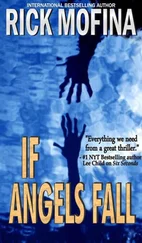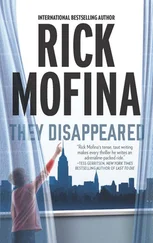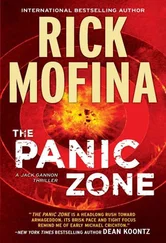Rick Mofina - Six Seconds
Здесь есть возможность читать онлайн «Rick Mofina - Six Seconds» — ознакомительный отрывок электронной книги совершенно бесплатно, а после прочтения отрывка купить полную версию. В некоторых случаях можно слушать аудио, скачать через торрент в формате fb2 и присутствует краткое содержание. Жанр: Триллер, на английском языке. Описание произведения, (предисловие) а так же отзывы посетителей доступны на портале библиотеки ЛибКат.
- Название:Six Seconds
- Автор:
- Жанр:
- Год:неизвестен
- ISBN:нет данных
- Рейтинг книги:5 / 5. Голосов: 1
-
Избранное:Добавить в избранное
- Отзывы:
-
Ваша оценка:
- 100
- 1
- 2
- 3
- 4
- 5
Six Seconds: краткое содержание, описание и аннотация
Предлагаем к чтению аннотацию, описание, краткое содержание или предисловие (зависит от того, что написал сам автор книги «Six Seconds»). Если вы не нашли необходимую информацию о книге — напишите в комментариях, мы постараемся отыскать её.
Six Seconds — читать онлайн ознакомительный отрывок
Ниже представлен текст книги, разбитый по страницам. Система сохранения места последней прочитанной страницы, позволяет с удобством читать онлайн бесплатно книгу «Six Seconds», без необходимости каждый раз заново искать на чём Вы остановились. Поставьте закладку, и сможете в любой момент перейти на страницу, на которой закончили чтение.
Интервал:
Закладка:
Failure to pay resulted in beheading.
After traveling a day and a night and aided by a tem peramental GPS, the small search party had reached the reported location. It was not likely they would find sur vivors, the flight crew had warned.
It was dangerous proceeding as the winds hurled wall after wall of sand at the trucks, rattling windshields and hampering visibility. The relief workers were led by an Egyptian doctor from Cairo. Then there was a Brazilian, who’d left his job as a Sao Paulo banker, a young female American death-penalty lawyer from Texas, and an Italian soldier from Venice.
Out of the hot swirling sand-laden winds, which had blotted the sun, a large piece of fabric, a remnant of a tent, suddenly enshrouded the Rover’s grill, flapping madly on it like a traumatized victim as the party came upon the carcass of an animal, its stiffened limbs pointing skyward.
“Looks like a goat,” said the soldier, stopping the Rover. Pulling his head scarf around his face and stepping into the storm, he leaned over the carcass and saw it was not a goat but the corpse of an old man. He had been disemboweled. The soldier said nothing as the wind slammed against him. He knew the work of the group behind the crime. They would find no survivors here. When the soldier returned to the truck, he said to the others, “Let’s keep moving.”
From Ethiopia to Algeria, Kurdistan and Sudan, each of the relief workers knew the horrors visited upon the dispossessed. The stare of a dead child’s eyes, the stench of a corpse, the colors and textures of human organs, torn limbs, the feast of maggots on a decapitated human head, all were common experiences for them.
They were acquainted with evil.
As expected, they’d found no survivors among the several dozen victims of what was an attack by a fun damentalist extremist group of bandits. Many of the victims had been beheaded after they were tortured. “That is their signature,” the soldier said as they searched for documents and identifying items that would be recorded in a regional data bank at Riyadh. Even the camels, sheep and goats had been killed.
The toll was four men, six women and eight children aged two months to thirteen, according to the doctor’s estimates.
Bedouins were camel and goat herders, a vanishing people who, for centuries, had been nomadic from Af ghanistan to Sudan. Although some tribal vendettas carried for generations, this attack exceeded any perver sion of tribal law, sect or creed.
It was an unfathomable outrage, the American wrote in her journal.
By nightfall they had assembled the corpses and built a huge funeral pyre from the remnants of tents, bedding, handwoven blankets and camel saddlebags. The night was clear. Tranquil. The winds slept. Constellations wheeled overhead as the flames and smoke ascended into the eternal desert sky. The bodies burned with the putrid smell one never forgets as the Egyptian doctor recited a passage from memory.
“We only have the life of this world. We die and we live, and nothing destroys us but time.”
That night as the fire crackled and the group settled into their tents, the workers did not speak, or even attempt to comfort each other. The Egyptian searched for answers in the worn copies of his holy books. The Brazilian and the soldier played chess. The American wept in private until sleep took her.
In the morning, they rose with the sun as the winds resumed. Exhausted, the foursome said little to each other as they departed. They had driven for nearly three hours when the Brazilian squinted from behind the wheel of the Mercedes into the sandstorm. “It looks like something ahead. An animal.”
“A goat from the camp. A survivor,” the doctor said. “Let’s pick it up.”
“I’m not certain what it is.” The Brazilian radioed ahead to the soldier in the Rover.
The soldier reached for binoculars, trying to discern the small form ahead.
“That’s not an animal! It’s a woman!”
He shifted gears.
Oblivious to the trucks, the woman walked deter minedly, even as the trucks overtook her and braked in front of her. All four workers climbed out and stood in her path, staring at her. Only when she reached them did she halt.
She appeared to be in her thirties. From the quality and fabric of her tattered garments, she at first appeared to have been a shepherd’s wife. But the Egyptian doctor saw something more, saw the vestiges of an educated woman, a middle-class woman of standing, perhaps.
A woman who did not belong here.
Under her head scarf, they saw her face was bruised and scarred with dried blood. Her parched lips mute. Her blank eyes did not regard the workers. They did not regard anything.
“What is your name?” the doctor asked first in Arabic, then several other languages, including English and French.
No response.
“She is in shock and dehydrated,” he said, then to the woman, “You are safe. You are now with friends.”
At that, the woman collapsed. The soldier caught her.
“Let’s get her onto a stretcher,” the doctor said.
Wind-driven sand hissed and pelted the canvas of the Mercedes as the doctor and the American aided her, checking the woman’s vital signs, setting up an IV drip. Examining her, the doctor found she had cuts and con tusions from severe beating.
When they resumed their journey, the doctor watched over the woman in the rear, swaying with the truck’s rhythmic rocking.
She was semiconscious. Her vital signs were good. They had been traveling for nearly an hour; all the while the doctor wondered, Who was this sole survivor?
She was not a tribeswoman. She seemed misplaced in the region. She had smooth skin, almond-shaped eyes. She was beautiful. He tried to comprehend what she had witnessed and fathom reasons for her being here. Running a soothing hand over her forehead, he noticed an unusual protrusion within her clothing.
He discovered a hidden, zippered pocket cleverly sewn along a seam. He opened it, extracted its contents. Documents. He studied them carefully, absorbing her identification.
Samara Anne Ingram.
Her photograph. A nice smile. Dual citizenship. An Iraqi from Baghdad. A British subject. A certified nurse. Small photographs of a man and a little boy. Her husband and child? But they were not among the dead.
Why was she here?
An aid worker, perhaps?
An idea landed on the doctor.
“Change our course now!” he yelled to the front. “We must go to Yemen!”
“Yemen?” the Brazilian responded over the engine’s roar. “Why?”
“I know medical people there. Good ones. It’s better we take her there. Tell the others on the radio! We must change course now! Turn around!”
“But the guards at the border will make things diffi cult.”
“I can take care of that.”
“You’re the boss.”
Few people alive knew the Egyptian’s true identity and his role as senior recruiter for one of the deadliest networks in the world. The doctor touched his waist and his con cealed money belt. It was thick with cash, bribe money that would ensure entry into Yemen with no questions asked.
If that failed, he only had to put his lips to an ear, whisper a name, and all doors would open for him.
All doors.
He was oblivious to the radio’s chatter-the Italian cursing the GPS again-and the swish of petrol in the trucks’ many exterior storage containers as transmis sions ground and the trucks turned and headed off for the lethal zone of Yemen’s northern border with Saudi Arabia.
The Egyptian was oblivious to it all.
For he was no longer a doctor with the relief agency. Now, he was performing his other duty-one the others knew nothing of.
No one saw him slide Samara’s identity papers inside his boot.
Читать дальшеИнтервал:
Закладка:
Похожие книги на «Six Seconds»
Представляем Вашему вниманию похожие книги на «Six Seconds» списком для выбора. Мы отобрали схожую по названию и смыслу литературу в надежде предоставить читателям больше вариантов отыскать новые, интересные, ещё непрочитанные произведения.
Обсуждение, отзывы о книге «Six Seconds» и просто собственные мнения читателей. Оставьте ваши комментарии, напишите, что Вы думаете о произведении, его смысле или главных героях. Укажите что конкретно понравилось, а что нет, и почему Вы так считаете.












